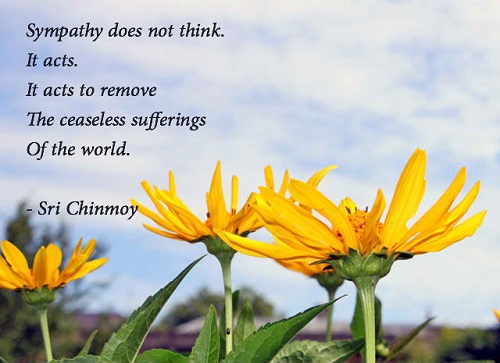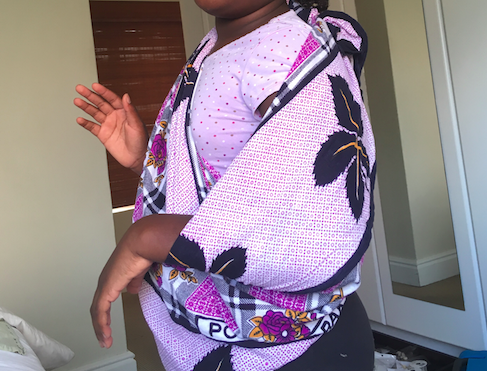
The Key To Great Parenting Is Simple. Have Some Sympathy.
Sympathy
noun
Understanding between people; common feeling

It doesn’t matter if your child is a few days old or well into their fifties; a parent is most likely to assess an unfamiliar scenario with one uppermost question: “Am I responding to this situation the right way?” Whether confronted with a choice between letting your infant cry it out or refraining from interfering with advice administered with the aim of keeping your grown baby from forging ahead with a doomed relationship, we parents find ourselves faced with impossible choices. Or at least those choices often feel impossible. What if the consequence of not soothing your child to sleep is their eventual transformation into a mass murderer? What if that wretched paramour that your daughter swears she can’t live without ends up taking her life one day? These are questions many parents entertain. Having a child produces in one an uncanny ability to imagine the worst scenarios. Being a parent means waking up every day hoping for the best, but preparing for the worst.
Lucky for the world, most of us who have undertaken the task of parenting – by choice or by accident (mostly by accident) – desire to do the job properly. We want to be “great” parents. It’s an elusive pursuit, with no end of pitfalls and errors and snares along the way. At stake is not just our pride in a job well done, but in the production and development of a functioning, intelligent and above all if you’re an African parent, useful, human being. (Is there anything more devastating than being declared useless by your African father?) It’s a great deal of stress and pressure; and there is no handbook for raising the perfect child. However, there is no one more qualified to do this job than you. Even when I am frustrated and on the verge of shipping any number of my children off to boarding school – or during more extreme days, running away from home myself – I am reminded of this fact. As a grandmother from the Virgin Islands once admonished me, “Honey, no one in this world can raise your children the way you can.”
With that one statement administered in equal parts treacle and vinegar, she talked me down from the edge. No one in this world is capable of giving my children the peculiar brand of love I hold for them. And as delightful as your kids may be, I am certain that I cannot love them with as much intention and ferocity as you do. There isn’t a parenting magazine or broadcast program to date that hasn’t driven home the point that all that is required to conquer the Parenting round at the Thunder Dome is a heaping dose of love. What I hear less spoken of, and what I have only come to discover myself, is how much sympathy plays a role in successful parenting. While each of has our definition of love and how to express it (though love, old school love, etc), sympathy usually manifests itself more consistently.
Take yesterday at my house, for instance. I’d just returned home from doing the second round of carpool pick ups and entered the house to find Liya wailing on the settee. My husband was speaking to her in a patronizing tone, and having little success in toning down the screaming fit. Liya was wearing skates, so I figured she’d taken a spill.
“What happened?”
“I fellllll and I hurt my aaarrrrmmmmm!” she screeched. She showed me her elbow, which was neither swollen nor bleeding, for dramatic affect.
My husband snickered quietly as I examined the site of injury.
“Come with me,” I said gravely.
She followed me to my bedroom, gliding deliberately and gingerly on her skates.
“Get on the bed and sit very still,” I said. “We’re going to have to make a sling.”
Liya sniffed and took a long, ragged breath. Her eyes were round as saucers as I extracted a purple ntoma (cotton cloth) from my closet. I put her elbow in a crook, tied the cloth securely around her neck and pulled her to her feet. The wells of anguish in her eyes dried instantly.

“Better?”
She nodded emphatically and skated back to the living room to show her brother her new ‘sling’. Thanks to its magic, she would soon be on the road to total recovery. Now that she was gone, I could laugh to myself.
Making a sling from an old bit of cloth, planting kisses on sore spots to make them better…even pouring ‘tussen on a gaping wound are demonstrations of sympathy. They say, “Even though I’m not feeling what you’re feeling right now, I can understand what you’re going through and I’m here in this moment with you.” I hope that I can share more of those moments with my kids.
While I’m no parenting scholar, I believe that sympathy for your children as they navigate the trails of growing up is vital not just for their personal wellbeing, but for the success of your relationship with them as well. We often forget what it was like to be a child; the shock of trying something new and failing; the devastation of losing your best friend from second grade to a new clique and all the other new/ frightening/exhilarating experiences children have on a daily basis. But if we can tap into those moments with them and celebrate or navigate them with them, it’s a sensation that they will carry with them and treasure for the rest of their lives.




